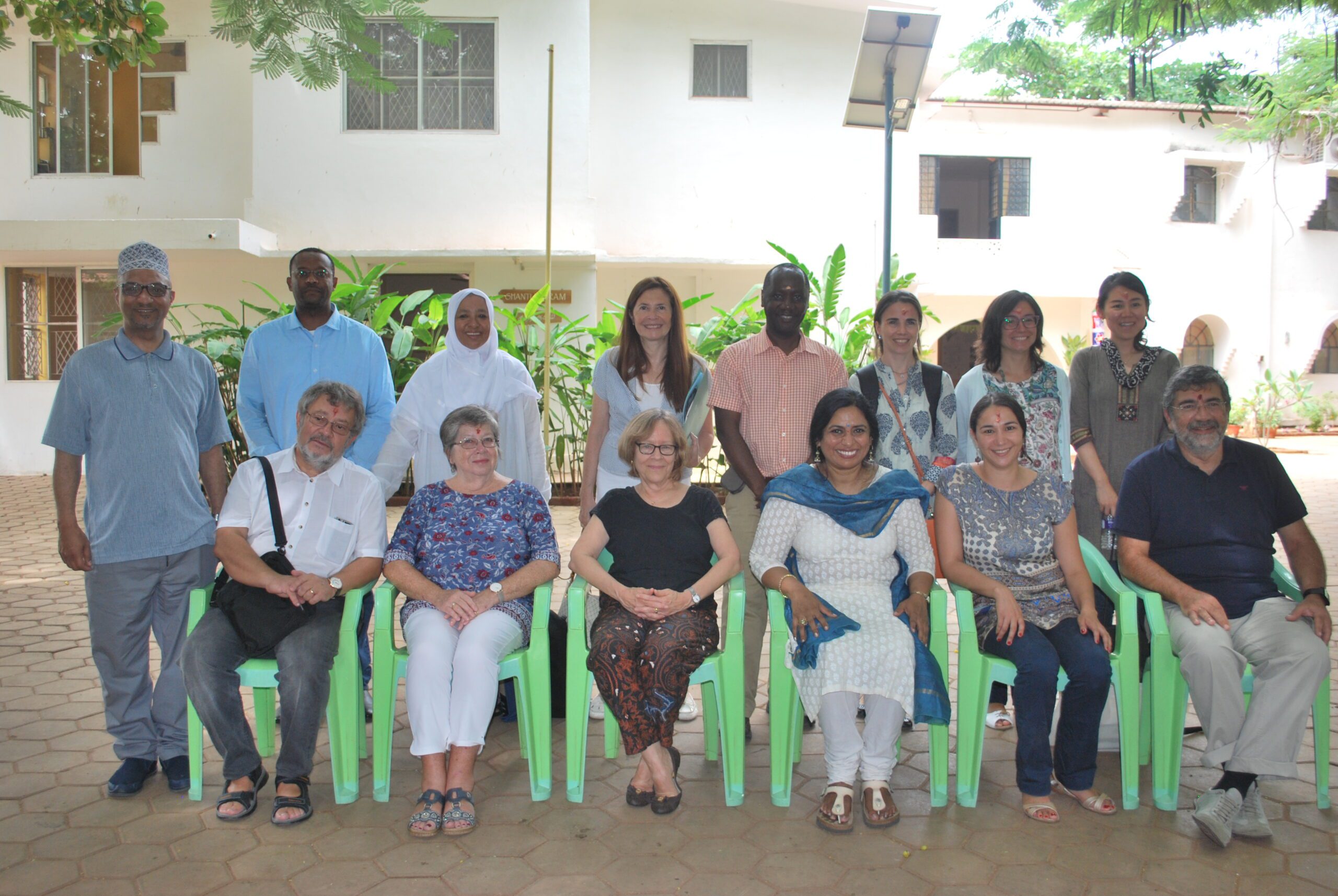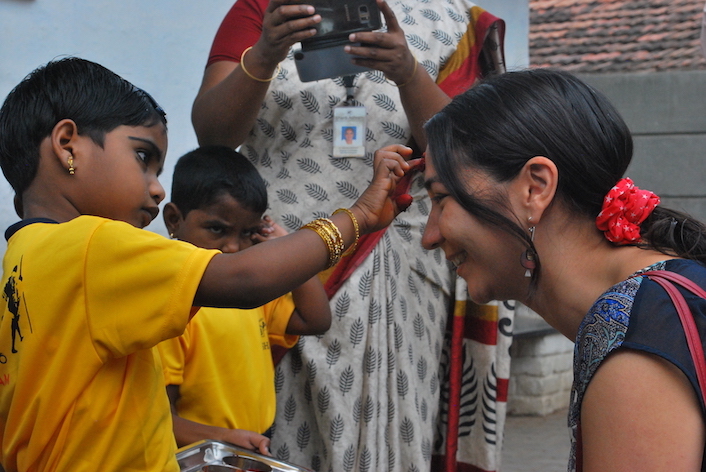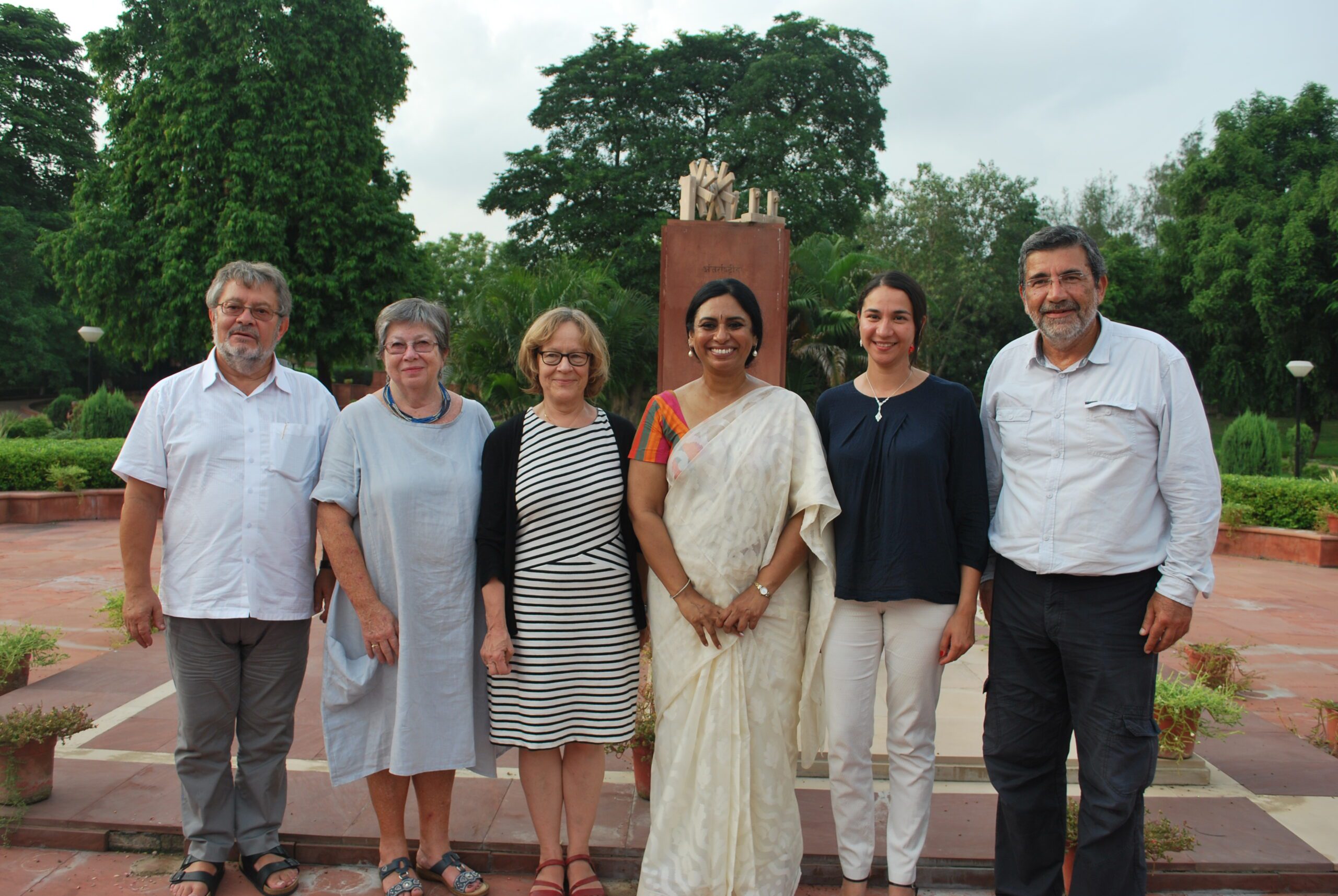
As in previous years, the Interfaith Council on Ethics Education for Children held its annual meeting to help strategize and provide recommendations for the next period. This time, the meeting took place from 10 to 14 August 2017 in Coimbatore, India where the headquarters of Shanti Ashram, a long-time partner of Arigatou International Geneva, is located.
At the meeting, members of the Interfaith Council had the opportunity to review achievements and challenges of Arigatou International Geneva during the last year, reflect on relevant topics regarding Ethics Education for Children, and exchange views on the strategic plan for the next three years, providing technical recommendations as well as rationale-related inputs.
The official opening of the Interfaith Council meeting was preceded by a roundtable discussion titled: Building Cohesive Societies in Multicultural Contexts – The Role of Children and Youth for the Prevention of Violence. The roundtable was organized in New Delhi by Shanti Ashram in collaboration with Arigatou International Geneva, Focolare Movement and Gandhi Darshan, a local organization that aims to propagate the life, mission and thought of Mahatma Gandhi through various socio-educational and cultural programs.
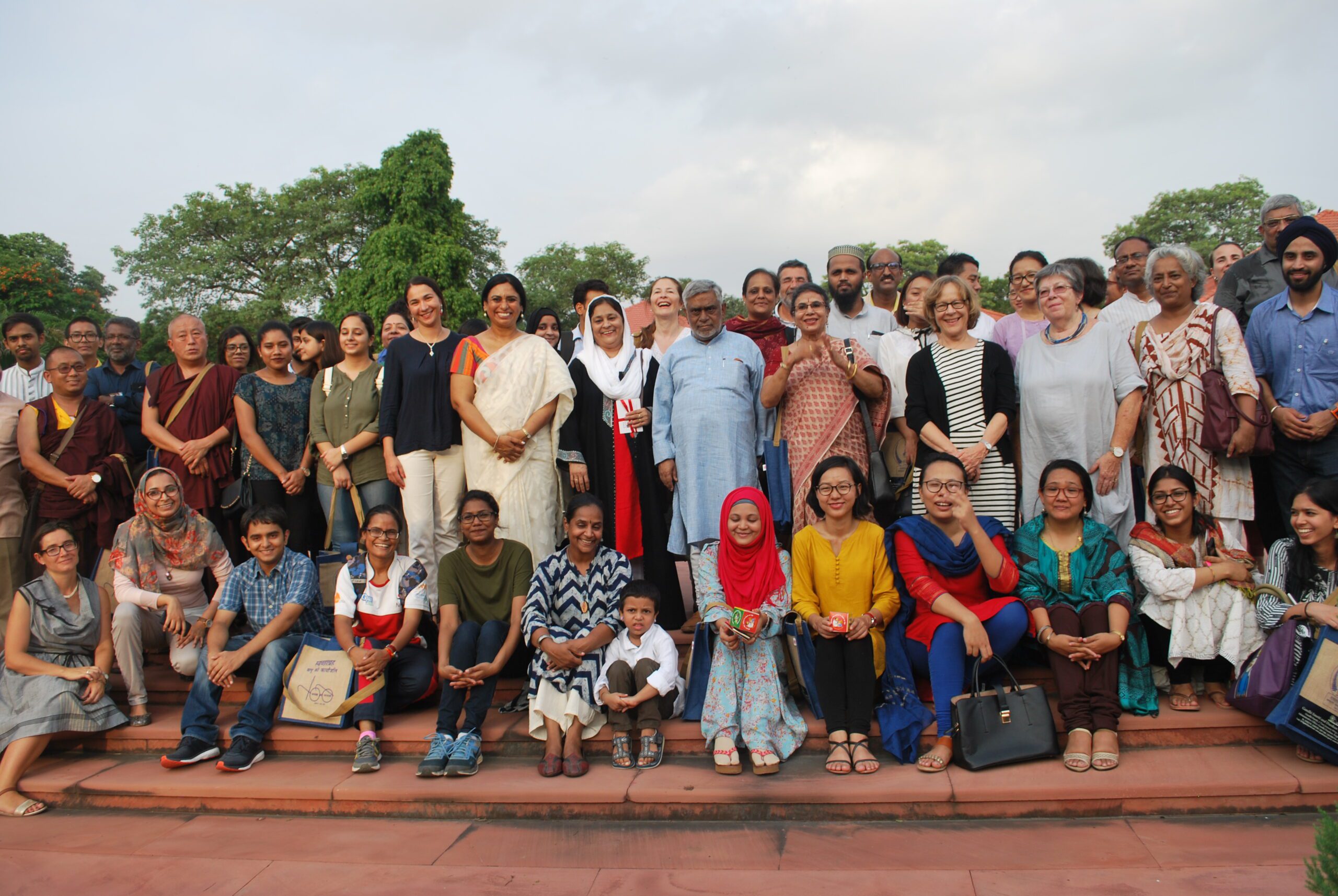
The roundtable offered a unique space to reflect on opportunities and challenges within the education systems for building cohesive societies, as well as to put forward recommendations about fostering the role and participation of children in building cohesive societies from the perspective of education in formal and non-formal settings.
Panellists reflected on the need to foster education that promotes learning to live together, the role of informal education through implicit teaching, and of teachers as role models in schools. The importance of ensuring an education that challenges violent structures, as well as the value of developing critical thinking in children and youth, were also discussed. They reflected as well on the intersections between religious and secular communities, and about finding the “glue” that can bring us together and make our societies cohesive.
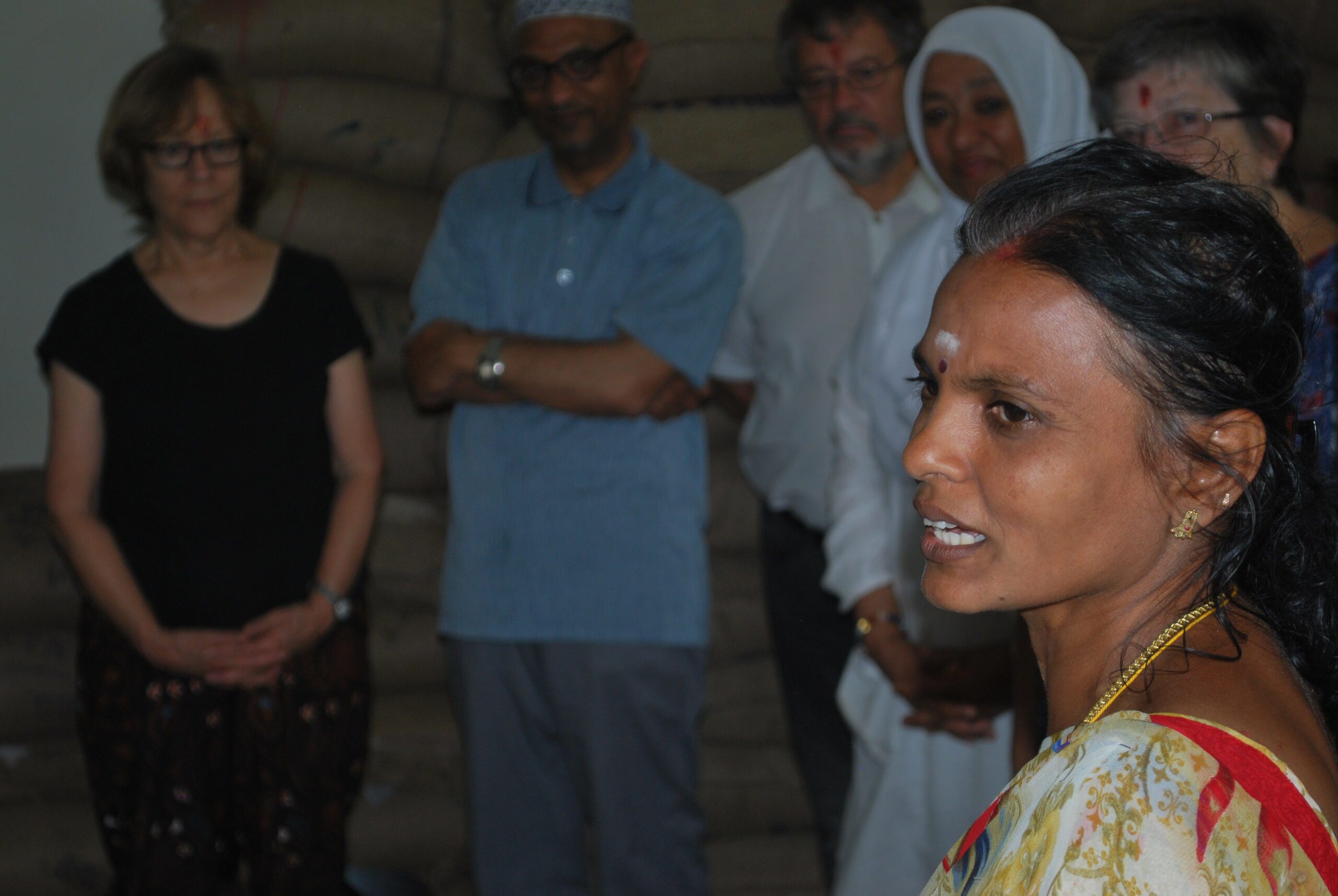
The roundtable brought together participants and pioneers from development organizations working with children, inter-religious initiatives focusing on building peace, academia, youth, children, and representatives from the Gandhian movement. Besides the thematic sessions, participants explored concrete ways to collaborate and work together. The roundtable ended with a call for action and collaboration between the 30 child-based organizations that were present.
Members of the Interfaith Council also had the opportunity to participate in the Coimbatore Peace Festival organized by Shanti Ashram. Over 1,500 children from different communities in Coimbatore gathered on this occasion, to stand together for peace. Later on, Interfaith Council members met local practitioners to exchange ideas about transformative pedagogies and supporting families in fostering ethical values and spirituality in early childhood.
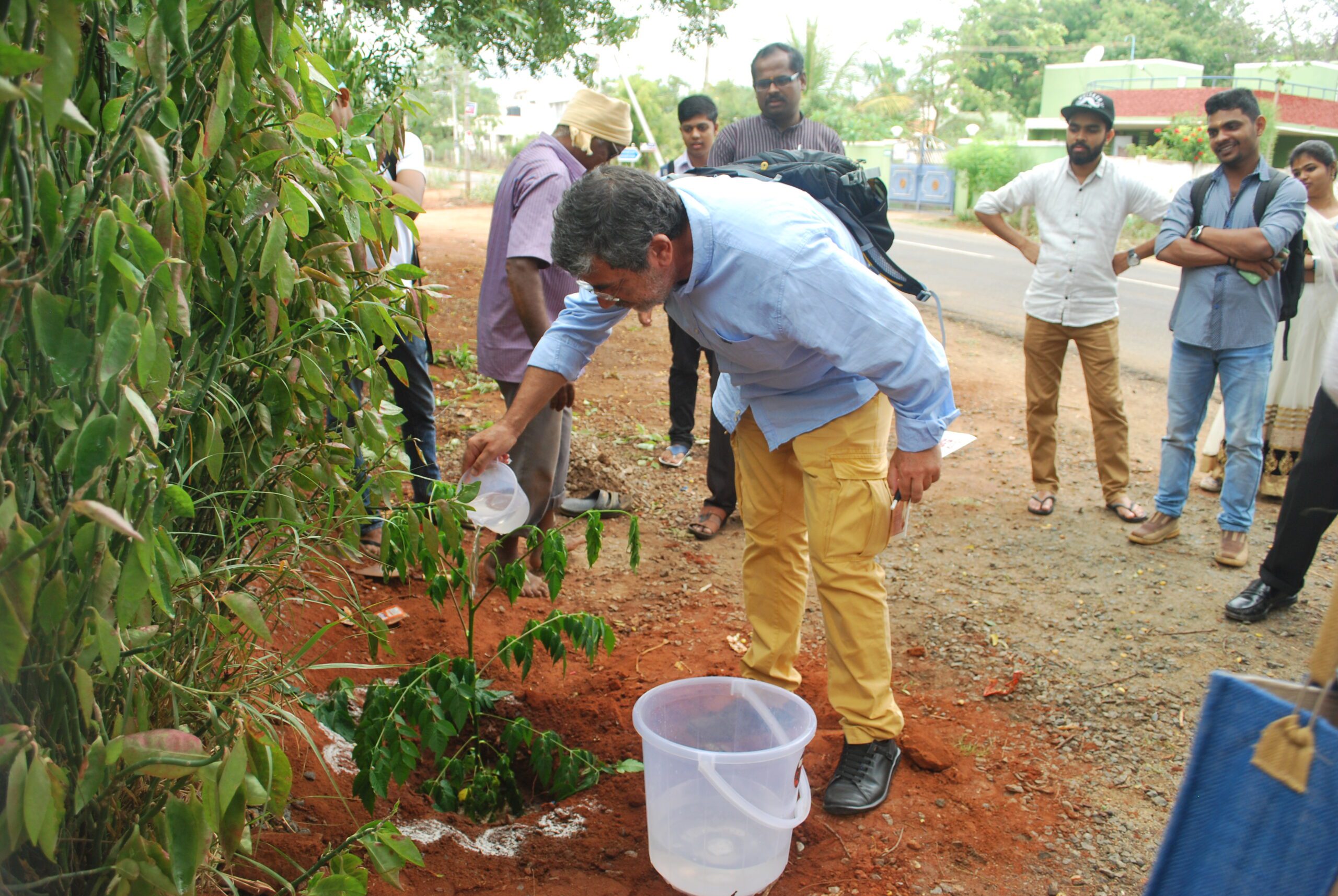
On 13 August, Shanti Ashram held a dialogue with young people and members of the Interfaith Council on Ethics Education for Children on the topic of global citizenship. Around 20 youth from Tamil Nadu gathered to share their views on what global citizenship means for them and how they can respond to the challenges it poses. The inter-generational dialogue was an opportunity to reflect together, to share what it means to be a global citizen in a world that has become increasingly more interdependent and yet a world where exclusion, racism, segregation, and extremism are rising.
Young people today need to help shaping the world and creating new narratives of mutual understanding and respect. We have an ethical obligation to make their voices heard and create spaces for them to become the voices of inclusion, empathy, and solidarity.
We thank our Interfaith Council members for their valuable recommendations and their unwavering commitment to moving forward the Ethics Education for Children agenda.
